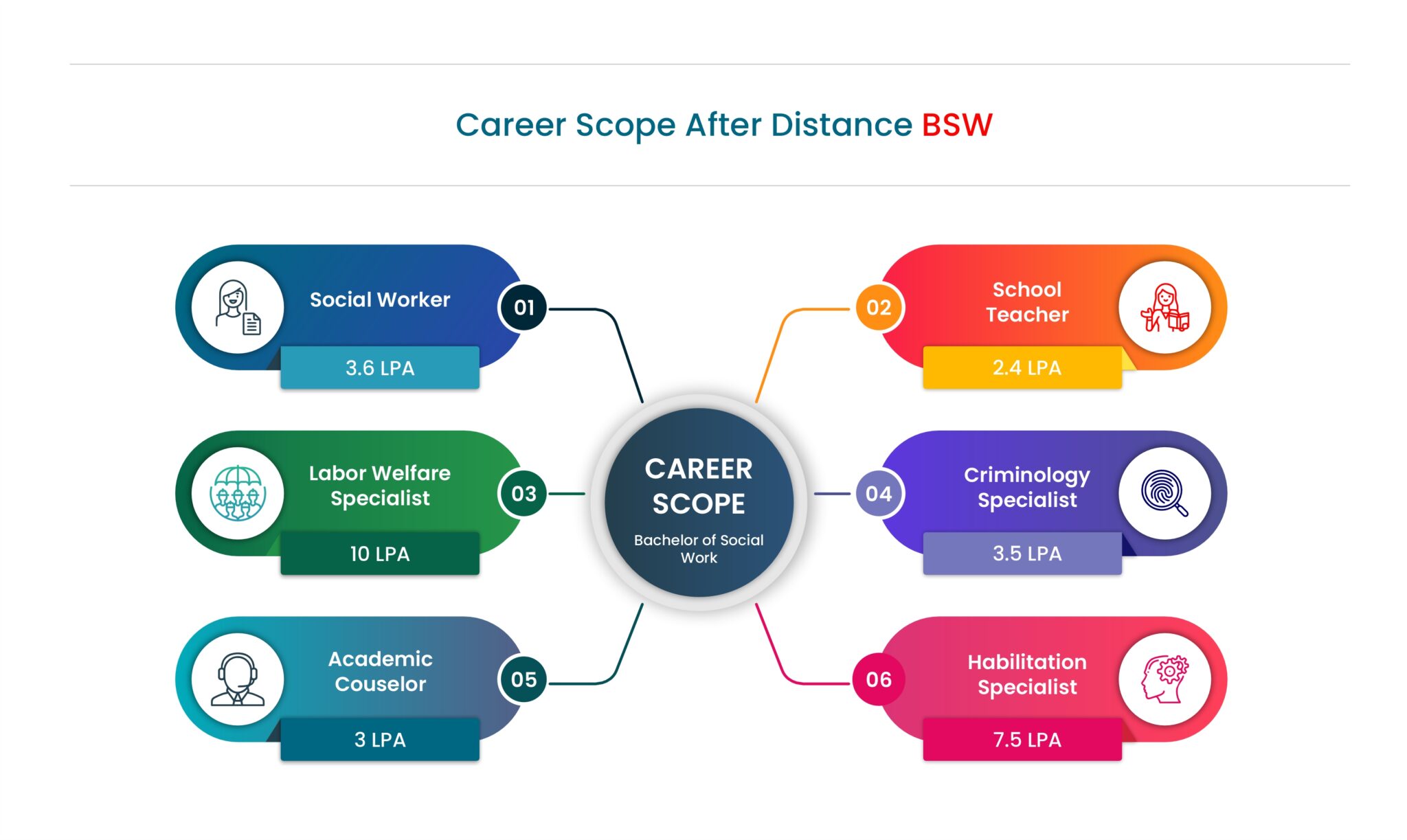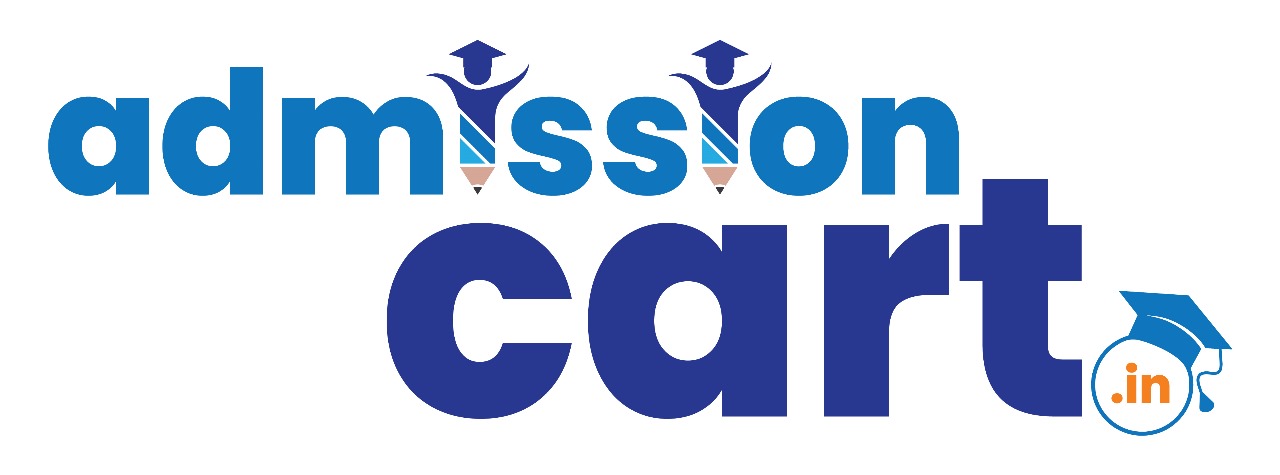Online BSW
Bachelor of Social Work (BSW) is an undergraduate degree program designed to equip students with foundational knowledge and practical skills in social work practice, social welfare policies, community development, and advocacy.
Average fee: 10000
Duration: 3 Years
Eligibilty: 10+2 or equivalent from a recognized institution.
Universities: 0

Overview of Online BSW
1. Overview of Online BSW Programs
-
Bachelor of Social Work (BSW) is an undergraduate degree program designed to equip students with foundational knowledge and practical skills in social work practice, social welfare policies, community development, and advocacy.
-
Online BSW programs in India offer the same curriculum and degree as traditional on-campus programs but provide the flexibility of remote learning through virtual classrooms, online lectures, and interactive learning platforms.
2. Advantages of Online BSW Programs
-
Flexibility: Study from anywhere and at your own pace, making it suitable for working professionals and individuals with personal commitments.
-
Accessibility: Access to quality education from reputed Indian universities without geographical constraints.
-
Cost-effectiveness: Potential savings on commuting, accommodation, and other associated costs compared to full-time on-campus programs.
3. Top Universities Offering Online BSW Programs in India
Here are some prominent universities in India offering online BSW programs:
-
Indira Gandhi National Open University (IGNOU): Offers an online BSW program known for its extensive reach and flexible distance education.
-
Tata Institute of Social Sciences (TISS): Provides an online BSW program focusing on social work practice, community development, and social justice.
-
Amity University Online: Offers an online BSW program with a comprehensive curriculum covering social work theories, methods, and fieldwork practice.
-
University of Madras: Offers an online BSW program through its Institute of Distance Education, providing foundational knowledge in social work and related disciplines.
4. Admission Criteria and Process
-
Eligibility: Typically requires a higher secondary certificate (10+2) or equivalent from a recognized board. Some programs may have specific eligibility criteria related to subjects studied or minimum marks required.
-
Entrance Exams: Some universities may conduct entrance exams specific to the BSW program or the university itself. Alternatively, admission may be based on merit in the qualifying examination.
-
Application Process: Involves filling out an online application form, submitting academic transcripts, and possibly letters of recommendation or a statement of purpose (SOP).
5. Curriculum and Course Structure
-
Core Courses: Cover fundamental topics such as Introduction to Social Work, Human Behavior and Social Environment, Social Welfare Policies and Programs, Community Organization, Research Methods in Social Work, and Fieldwork Practicum.
-
Practical Training: Includes supervised fieldwork or internship components to provide hands-on experience in social work settings.
6. Learning Experience and Resources
-
Online Platforms: Utilize learning management systems (LMS) for virtual lectures, assignments, group projects, and discussions.
-
Interactive Tools: Access to online libraries, digital resources, case studies, webinars, and simulations to enhance learning and practical application of social work principles.
-
Support Services: Receive academic guidance, fieldwork supervision, career counseling, and technical assistance remotely. Many universities also offer networking opportunities with faculty and alumni.
7. Career Opportunities
-
Job Roles: Graduates can pursue careers as Social Workers, Community Organizers, Case Managers, Counselors, Youth Workers, Rehabilitation Specialists, and Advocacy Officers in NGOs, government agencies, healthcare settings, educational institutions, and community-based organizations.
-
Industry Demand: Increasing demand for skilled social workers to address social inequalities, promote social justice, and provide support to vulnerable populations across various sectors.
8. Accreditation and Quality Assurance
-
Accreditation: Ensure that the online BSW program is recognized and accredited by regulatory bodies such as UGC, AICTE, or specific accreditation agencies in social work education to ensure the quality and recognition of the degree.
-
Program Reputation: Consider university rankings, accreditation status, faculty expertise, alumni feedback, and industry collaborations to assess the program's credibility and relevance in the field of social work.
9. Costs and Financial Aid
-
Tuition Fees: Vary by institution and program structure. Evaluate overall program costs including tuition fees, examination fees, study materials, and any additional charges.
-
Financial Aid: Some universities offer scholarships, grants, or flexible payment options to support students in financing their education. Check with the institution for available financial aid opportunities and eligibility criteria.
10. Tips for Success in Online Learning
-
Time Management: Create a study schedule, set goals, and adhere to deadlines for assignments, exams, and fieldwork practicum.
-
Engagement: Actively participate in online discussions, collaborate with peers, and utilize networking opportunities provided by the program.
-
Self-discipline: Stay motivated, maintain focus, and utilize available resources effectively to maximize learning outcomes and contribute meaningfully to the field of social work.
